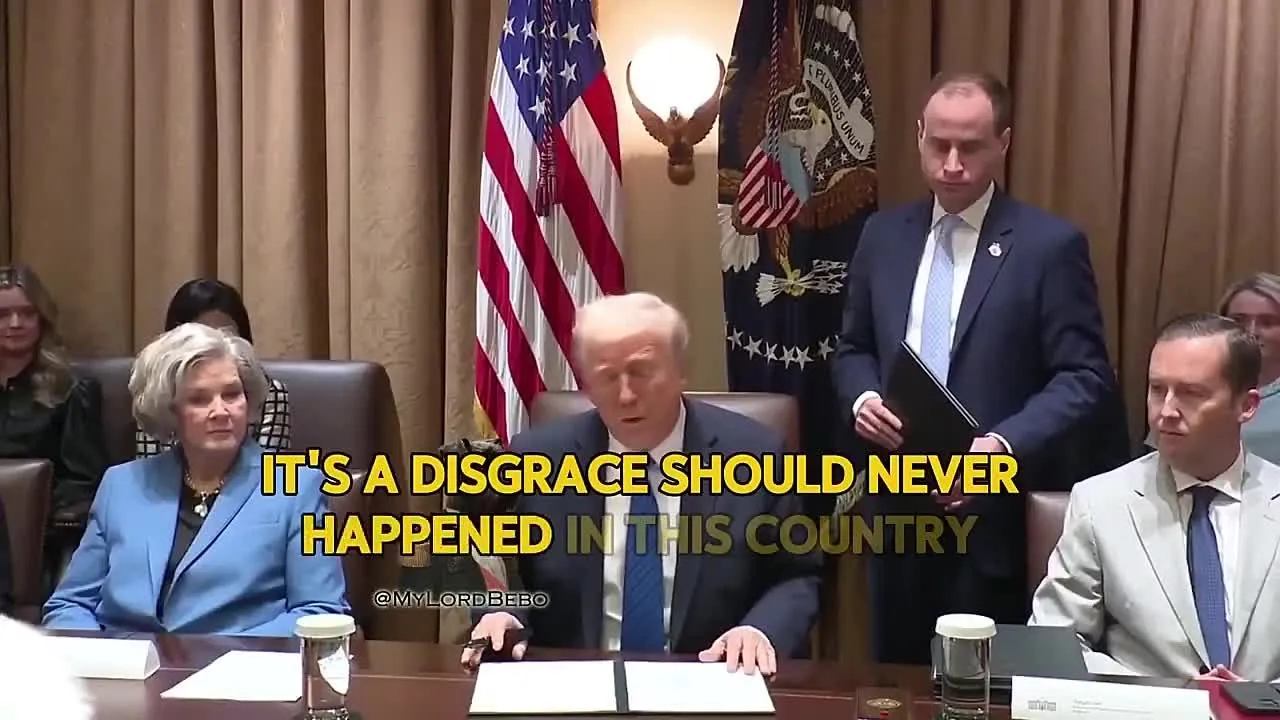Unraveling Crossfire Hurricane: Trump’s Bold Move to Declassify FBI Files
In a significant political maneuver, former President Donald Trump signed an executive order on March 25, 2025, directing the FBI to declassify documents related to the controversial Crossfire Hurricane investigation. This move has reignited a national debate about transparency, accountability, and the implications of releasing sensitive information.
Crossfire Hurricane, initiated by the FBI on July 31, 2016, was a counterintelligence investigation aimed at examining potential connections between the Trump campaign and Russian interference in the 2016 presidential election. The investigation has been a focal point of political discourse, with Trump frequently labeling it a “witch hunt” and a “Russia hoax” intended to undermine his presidency.
The executive order comes in the context of Trump’s ongoing claims that the investigation was politically motivated. In his statement, Trump justified the declassification as a necessary step to clear his name and expose what he describes as a politically charged investigation. “It’s time for the truth to come out,” he asserted, emphasizing his belief that transparency would vindicate him and his campaign.
The ramifications of the Crossfire Hurricane investigation have been profound. It led to multiple indictments and convictions of Trump campaign officials, highlighting the serious nature of the allegations surrounding Russian interference. The implications of these findings have stirred considerable debate within the political arena, with many calling for a thorough examination of the investigation’s conduct and its impact on U.S. democracy.
As news of Trump’s declassification order spread, reactions poured in from various quarters. Supporters of the former president hailed the move as a necessary step towards transparency and accountability. Conversely, critics expressed concerns that releasing these documents could jeopardize ongoing investigations and national security. “This could undermine the integrity of sensitive operations,” warned one intelligence expert, reflecting the apprehension felt by many in the intelligence community.
This latest executive order is not Trump’s first attempt to declassify documents related to Crossfire Hurricane. During his presidency, he faced significant pushback from intelligence agencies when he sought to release materials linked to the investigation. The Biden administration has also faced criticism for not fully releasing previously declassified documents, leading to accusations of continued concealment. Lawmakers from both parties have called for greater transparency regarding the investigation, with some demanding full access to the declassified materials.
The legal and ethical implications of Trump’s declassification order are significant. Experts suggest that the release of sensitive information may raise questions about the handling of classified materials and the rights of individuals involved in the investigation. Furthermore, the potential for legal challenges looms large, as the declassification could lead to court disputes over national security and the privacy of those implicated.
Media coverage of Crossfire Hurricane has been extensive, with major news outlets highlighting its significance in the context of U.S. politics. Analysts are closely examining how the declassification may influence the media landscape and ongoing narratives surrounding the Trump presidency. The investigation has become one of the most controversial FBI operations in recent history, drawing parallels to past political investigations and their implications for civil liberties.
Public sentiment regarding the declassification is notably divided. Polls indicate that while some view it as a necessary step for accountability, others fear it may politicize intelligence operations. This dichotomy in public opinion underscores the complex nature of the investigation and its far-reaching consequences for American democracy.
Looking ahead, the declassification of these documents could prompt new investigations or inquiries into the actions of the FBI and other agencies during the 2016 election cycle. The fallout from this decision may further complicate the already fraught relationship between the Trump camp and federal law enforcement. As Trump continues to assert that the Crossfire Hurricane investigation was a politically motivated attack, the release of these documents may serve to fuel ongoing debates about the integrity of U.S. elections and the role of foreign interference.
In conclusion, Trump’s bold move to declassify FBI files related to the Crossfire Hurricane investigation marks a pivotal moment in American political history. The implications of this decision are far-reaching, raising questions about transparency, accountability, and the ethical considerations surrounding the release of sensitive information. As the nation grapples with the consequences of this move, the legacy of Crossfire Hurricane continues to shape discussions about election integrity, foreign interference, and the role of law enforcement in political matters. The unfolding developments will undoubtedly influence the political landscape for years to come.






Leave a Comment